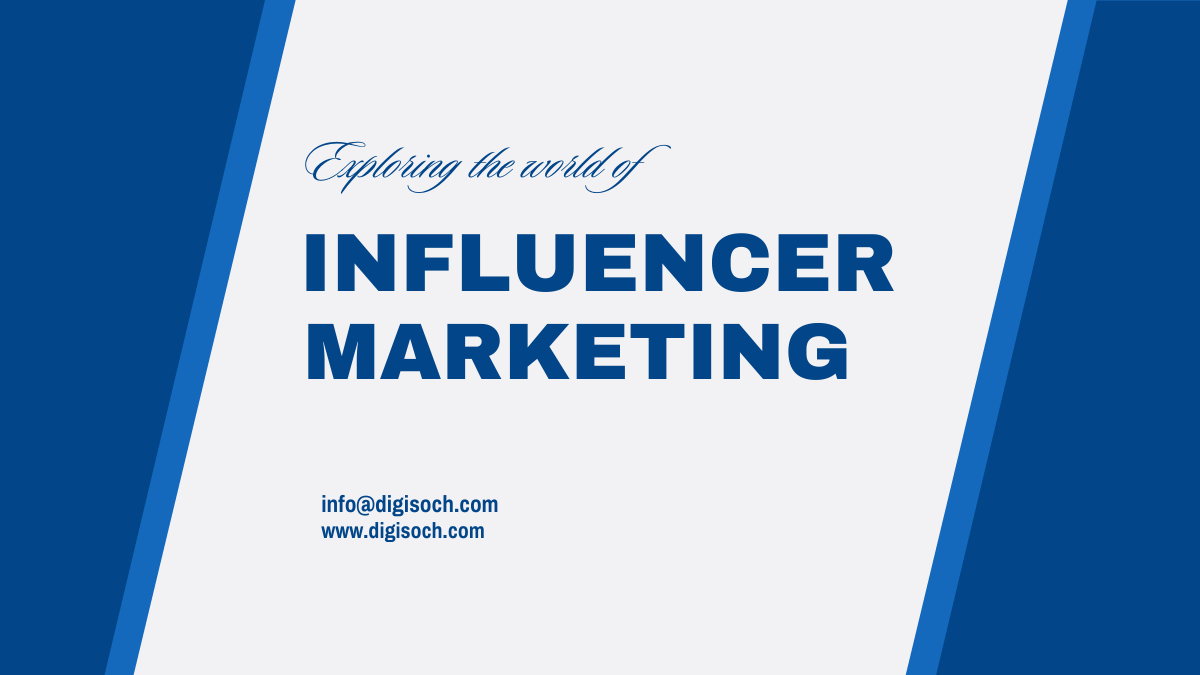In today’s digital era, social media has revolutionized the way we connect, communicate, and consume content. Along with this transformation, a new marketing phenomenon has emerged – influencer marketing. Influencer marketing leverages the power of social media influencers to promote products, services, and brands to their engaged and loyal followers.
In this blog post, we will delve into the world of influencer marketing, exploring its benefits, strategies, and the impact it has on businesses.
- Understanding Influencer Marketing:
- Influencer marketing involves collaborating with individuals who have a substantial online presence and a dedicated following in a specific niche or industry. These influencers, be it bloggers, vloggers, Instagrammers, or YouTubers, possess the power to sway the opinions and purchasing decisions of their audience. By partnering with influencers, businesses can tap into their credibility, authenticity, and social influence to reach a wider customer base.
- Benefits of Influencer Marketing:
- a) Increased Brand Awareness: Influencers have established themselves as experts and trusted figures within their respective communities. When they endorse a brand or product, they introduce it to their followers, significantly increasing brand exposure and visibility.
- b) Enhanced Credibility and Trust: Influencers have built a strong relationship with their audience, which creates a sense of trust and credibility. When they vouch for a product or service, their followers are more likely to believe in the authenticity of the recommendation.
- c) Targeted Reach: Influencers cater to specific niches, allowing businesses to precisely target their desired audience. This targeted approach ensures that marketing efforts are directed at the right people, leading to higher conversion rates and better return on investment (ROI).
- Building an Influencer Marketing Strategy:
- a) Define Objectives: Start by setting clear goals and objectives for your influencer marketing campaign. Whether it’s increasing brand awareness, driving sales, or launching a new product, having defined objectives will help shape your strategy.
- b) Identify the Right Influencers: Research and identify influencers who align with your brand values, target audience, and campaign goals. Look for influencers whose content and style complement your brand and who have an engaged and relevant follower base.
- c) Authentic Partnerships: Establishing authentic partnerships is crucial for the success of influencer marketing. Encourage influencers to create genuine content that resonates with their audience, rather than pushing for overtly promotional posts.
- d) Track and Measure Results: Utilize tracking tools and analytics to measure the impact of your influencer marketing campaigns. Monitor metrics such as reach, engagement, website traffic, and conversions to assess the effectiveness of your efforts.
- Influencer Marketing Trends:
- a) Micro-Influencers: The rise of micro-influencers with smaller but highly engaged audiences has gained traction. Partnering with micro-influencers allows for more intimate connections with followers and often results in higher engagement rates.
- b) Video Content Dominance: Video content continues to dominate social media platforms. Collaborating with influencers who excel in video content creation can amplify brand messaging and capture audience attention.
One of the key advantages of influencer marketing is its ability to generate creative and engaging content. Influencers are skilled content creators who understand the preferences of their audience, allowing them to craft compelling messages that resonate with their followers. This unique content creation not only captures the attention of the target market but also enhances brand storytelling and messaging.
